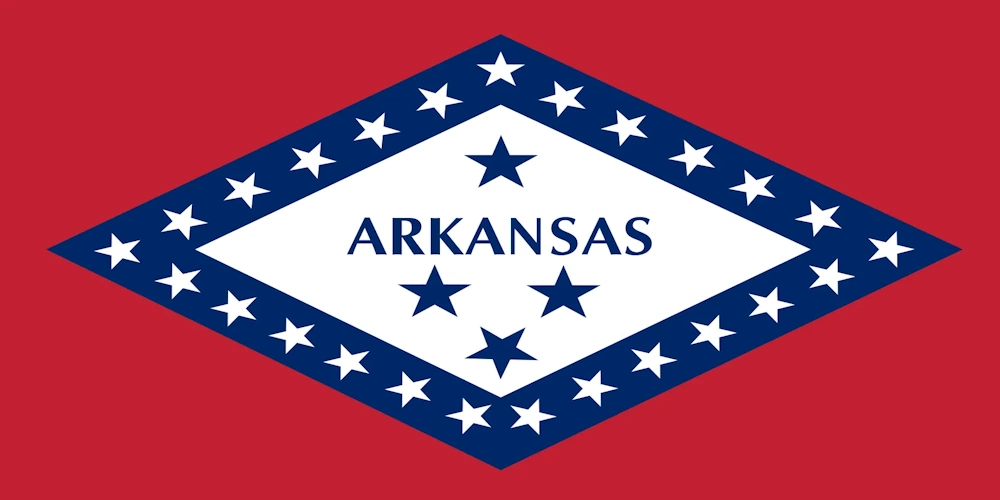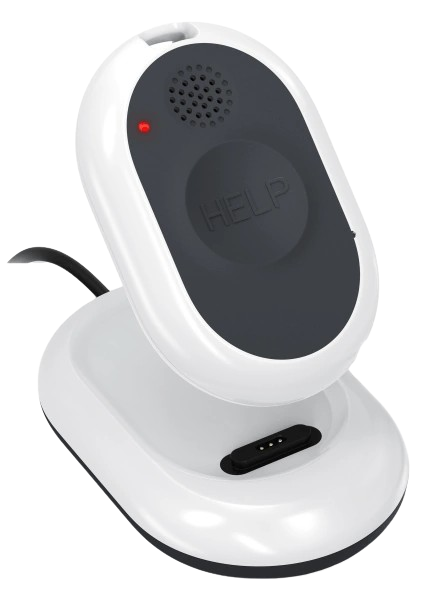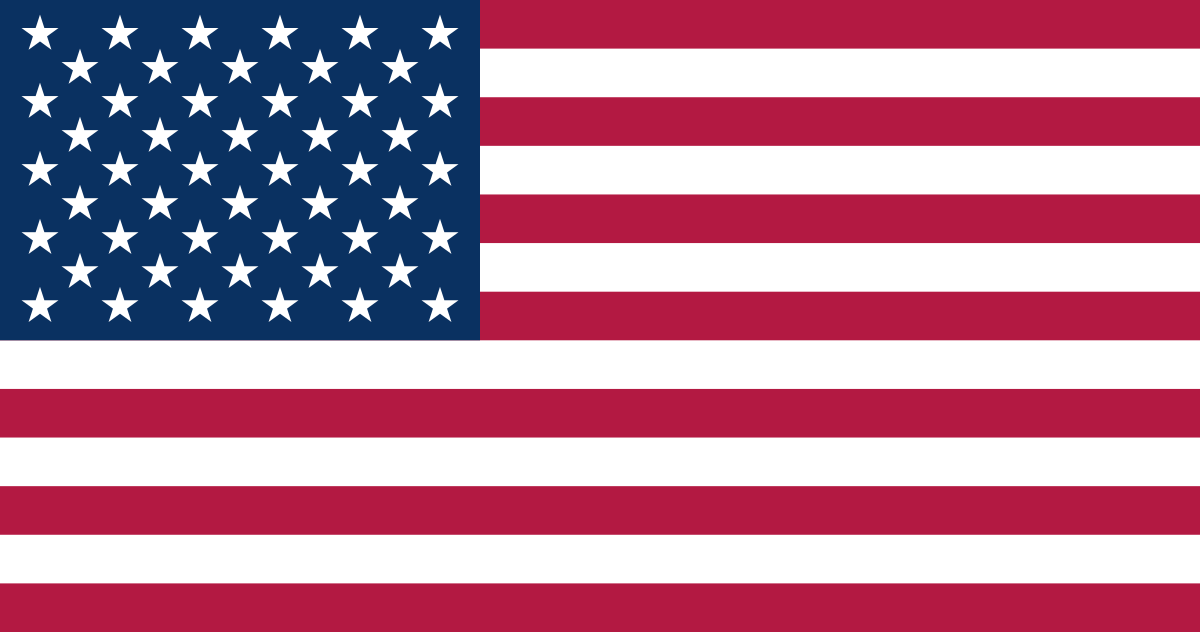Worker protection in Arkansas falls primarily under federal OSHA regulations, as the state does not operate its own OSHA-approved occupational safety and health plan. However, the Arkansas Department of Labor and Licensing (ADLL) plays a key role in supporting labor standards, workplace compliance, and public safety initiatives.
For employers with lone workers—employees who operate without immediate supervision or assistance—proactive risk management is essential. This guide outlines how lone worker safety is addressed in Arkansas, and how both OSHA and the ADLL are involved in promoting safer work environments.
On This Page
Our Guide To Lone Worker Safety Policy And Legislation In Arkansas
Because Arkansas operates under federal OSHA jurisdiction, employers must comply with all federal workplace safety standards. OSHA does not issue a separate regulation specifically for lone workers, but it does require that employers implement safety procedures that protect employees working alone, particularly in hazardous conditions. OSHA Standard 1915.84 emphasizes the need for routine communication and checks on lone employees in dangerous roles.
In addition to federal requirements, the Arkansas Department of Labor and Licensing (ADLL) is an important state resource for labor-related regulations, licensing, and workplace investigations. While the ADLL does not set occupational safety standards like OSHA, it may become involved in enforcing certain wage laws, licensing for specific trades, or investigating labor complaints that intersect with workplace conditions—including those involving lone workers.
Employers are encouraged to consider both federal OSHA guidance and state labor oversight when developing lone worker protocols.
How Arkansas Defines A Lone Worker
There is no formal definition of a “lone worker” under Arkansas law. However, consistent with OSHA and industry practice, the term refers to any employee who works without direct, nearby supervision or coworkers and who may not be able to summon help easily during an emergency.
Lone workers in Arkansas are common in roles such as:
- Agricultural operations in remote areas
- Home healthcare visits
- Utility maintenance and field services
- Janitorial or security work during off-hours
- Long-distance delivery or transportation
The defining factor is whether a worker can access help without delay if a safety incident occurs. If not, they should be treated as a lone worker, and employers must plan accordingly.
Employing A Lone Worker In Arkansas
Arkansas employers must meet federal OSHA obligations to ensure that all employees—including those working alone—are kept safe from workplace hazards. Additionally, they should be aware of any Arkansas labor laws enforced by the ADLL that could apply to worker rights, conditions, or licensing.
Key safety practices include:
- Conducting Risk Assessments: Identify and address the risks specific to isolated work conditions, including environmental hazards and emergency access.
- Establishing Regular Contact: Use scheduled check-ins, alarms, or mobile safety tools to maintain communication with lone workers.
- Emergency Readiness: Equip workers with tools for emergency communication, such as mobile alert apps, radios, or satellite phones in areas with low coverage.
- Training for Isolation Risks: Ensure that lone workers are trained in self-rescue techniques, first aid, and appropriate emergency protocols.
Employers should also document their lone worker procedures and ensure they are compliant with both federal OSHA expectations and any applicable ADLL-related labor standards.
Learn How You Can Protect Your Employees With Loneworker.com

With Loneworker.com you can be equipped with the knowledge and the means to protect your employees and protect your business. Contact us today to learn more about how Loneworker.com can protect you and your employees.
How The Safe Lone Worker App Can Protect Arkansas Lone Workers And Employers
With the unique safety needs of lone workers in mind, digital solutions like the Safe Lone Worker app are increasingly valuable. This mobile tool offers features like GPS tracking, timed check-ins, fall detection, and panic alerts—helping employers meet their safety obligations and respond quickly to emergencies.
In Arkansas, where many jobs take place in remote or rural areas, the app provides an added layer of protection that supports both compliance with federal safety regulations and the ethical responsibility to safeguard employees.
Arkansas Lone Worker Policies
Arkansas does not operate its own OSHA-approved occupational safety and health program. Instead, workplace safety and health in the state are regulated by federal OSHA. This means that all employers must comply directly with federal OSHA standards, which include general duty requirements to provide a safe workplace—even in cases where employees are working alone.
While there is no specific federal regulation solely dedicated to lone workers, OSHA expects employers to assess risks and implement controls for any job that involves working in isolation. This includes providing a way for lone workers to request help in an emergency and ensuring routine oversight where hazards are present.
In addition, the Arkansas Department of Labor and Licensing (ADLL) serves as a state resource for broader labor issues, such as licensing, wage and hour compliance, and workplace investigations. While ADLL does not issue safety regulations like OSHA, it may still have relevant oversight in areas that affect lone workers’ employment rights and workplace standards.
Arkansas Lone Worker Resources
OHS Contact Centre
- 1-866-415-8690
CDC / NIOSH
- 800-232-4636

Affordable Monitoring For Lone Workers In Arkansas

-
 Monitoring Your Employees' Safety
Monitoring Your Employees' Safety
-
 GPS Tracking And Monitoring
GPS Tracking And Monitoring
-
 Man Down Panic Alerts
Man Down Panic Alerts
-
 24/7 Protection Anywhere
24/7 Protection Anywhere
Lone Worker Legislation
Lone Worker Safety Policies And Legislation By State
-
 Alabama State Safety Policies And Legislation
Alabama State Safety Policies And Legislation
-
 Alaska State Safety Policies And Legislation
Alaska State Safety Policies And Legislation
-
 Arizona State Safety Policies And Legislation
Arizona State Safety Policies And Legislation
-
 Arkansas State Safety Policies And Legislation
Arkansas State Safety Policies And Legislation
-
 California State Safety Policies And Legislation
California State Safety Policies And Legislation
-
 Colorado State Safety Policies And Legislation
Colorado State Safety Policies And Legislation
-
 Connecticut State Safety Policies And Legislation
Connecticut State Safety Policies And Legislation
-
 Delaware State Safety Policies And Legislation
Delaware State Safety Policies And Legislation
-
 Florida State Safety Policies And Legislation
Florida State Safety Policies And Legislation
-
 Georgia State Safety Policies And Legislation
Georgia State Safety Policies And Legislation
-
 Hawaii State Safety Policies And Legislation
Hawaii State Safety Policies And Legislation
-
 Idaho State Safety Policies And Legislation
Idaho State Safety Policies And Legislation
-
 Illinois State Safety Policies And Legislation
Illinois State Safety Policies And Legislation
-
 Indiana State Safety Policies And Legislation
Indiana State Safety Policies And Legislation
-
 Iowa State Safety Policies And Legislation
Iowa State Safety Policies And Legislation
-
 Kansas State Safety Policies And Legislation
Kansas State Safety Policies And Legislation
-
 Kentucky State Safety Policies And Legislation
Kentucky State Safety Policies And Legislation
-
 Louisiana State Safety Policies And Legislation
Louisiana State Safety Policies And Legislation







